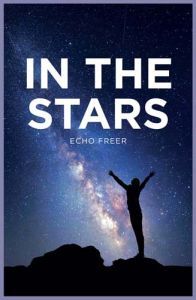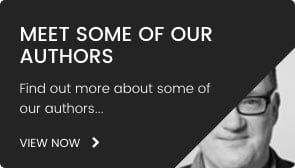Echo Freer
Echo has written ten books for teenagers and young adults including the Magenta Orange series of books, Blaggers, Diamond Geezers, which was long listed for the Leicester Book Awards, Mimosa Fortune and the Smuggler's Curse, short listed for the Hillingdon Book Awards, and her latest, Toxic Treacle which is a dystopian thriller.
Echo was born and brought up in Yorkshire and taught as a Special Needs teacher in both Primary and Secondary schools. She specialised in teaching and assessing children and young adults with who have dyslexia. She has dyslexia herself as do all her three children and she is passionate about encouraging children to read. She now spends her time writing and visiting schools, talking to students and teaching Creative Writing workshops. She has three grown up children and five grandchildren and lives in east London with her husband.
Q&A's with Echo Freer
What inspired you to write for reluctant readers?
I was a very reluctant reader myself when I was at school. I didn't know it at the time but I have dyslexia and it made reading and spelling very difficult – it still does. I had never read a whole book until I was in my 20s. Needless to say, I failed English Literature – twice! All three of my children have been diagnosed with dyslexia and now my eldest granddaughter has also been diagnosed. I know how important reading is and, as an adult, I joined a book group so that I read at least one book per month. I love it. For over 20 years I worked with children who have dyslexia and I want every child to have the opportunity to read as much as possible. It's the gateway to learning in every single subject.
What challenges do struggling readers face when they open a book?
The biggest problem is being faced with pages and pages of text, sometimes in a small font with long paragraphs and complex, irregular words. It's overwhelming and can put off someone who finds reading difficult.
What is your favourite type of character to create?
I like writing about naughty characters or ones who don't toe the line. I also like writing quirky or comedy characters so that when I read excerpts in school, the students laugh. That's the best feeling in the world: making people laugh.
What features and methods do you use to ensure that your books have that High Interest appeal that really engage teenage readers?
I write about characters and situations teenagers can engage with. I'm also fortunate that I kept all my diaries from when I was a teenager so, although times have changed, feelings haven't and I can recall how I felt in certain situations. I also believe that a strong plot is very important: it's no use having a fantastic beginning and then petering out half way through. Stories need to build up to a climax, so I plan my stories thoroughly before I begin.
What difference do books like these make to students who are in need of literacy support?
It's so important to have books that are written for teenagers on teenage themes that also have vocabulary that is readable. Reluctant readers don't want to feel patronised by having to read books for younger children. This only damages their self confidence even more.
Can you give us any teasers of what to expect in your upcoming title, In the Stars?
In the Stars is a story of forbidden love - a modern day Romeo and Juliet - but there's a twist in the ending. Hopefully, it's a real tear-jerker.
What are the major themes of your work?
Love; life-threatening illness; coping with adversity; the right to control one's own destiny.
What controls do you place on the vocabulary you use and how important is this?
Having worked in Special Needs education for over 20 years, I suppose I'm used to using simplified vocabulary when I write; choosing words that can easily be decoded. Why use the word conflagration when you can use fire to the same effect? I'm aware of how students learn to read and so can adapt the words I use to create stories that are interesting. There's nothing worse than having to decode every other word: you spend so much time working out what the words are, you lose the sense of the story.
What is your favourite children's book?
Eeek! I always dread this question because I didn't read as a child. I remember we did Moonfleet by J. Meade Falkner as a class reader when I was about 12 and I absolutely loved it. I read it again recently as part of my research for Mimosa Fortune and the Smuggler's Curse and I still really rate it.
As an adult I sometimes read kids' books and recently I've really enjoyed Wonder by R. J. Palacio about a boy with a facial deformity. Brilliant book – another tear-jerker!
Do you have any advice for aspiring writers/authors?
Write from the heart. By that I mean: write about things that matter to you; that you're passionate about.
And access your emotions and apply them to your characters. That way your readers will be able to identify with them. Even if you're writing a non-human character, they've still got to have human emotions or no one will understand them or sympathise with them.
Also, notice everything that goes on in the world: how people speak, or walk; sights, sounds, smells; conversations you overhear. Write them down as soon as possible after you've noticed them so that they're still fresh in your mind. You never know when they'll come in useful. Happy writing!
Speak to our team today on 01553 816082 or if you would prefer us to call you back then please enter your details in the form below and a member of our team will call you back.






